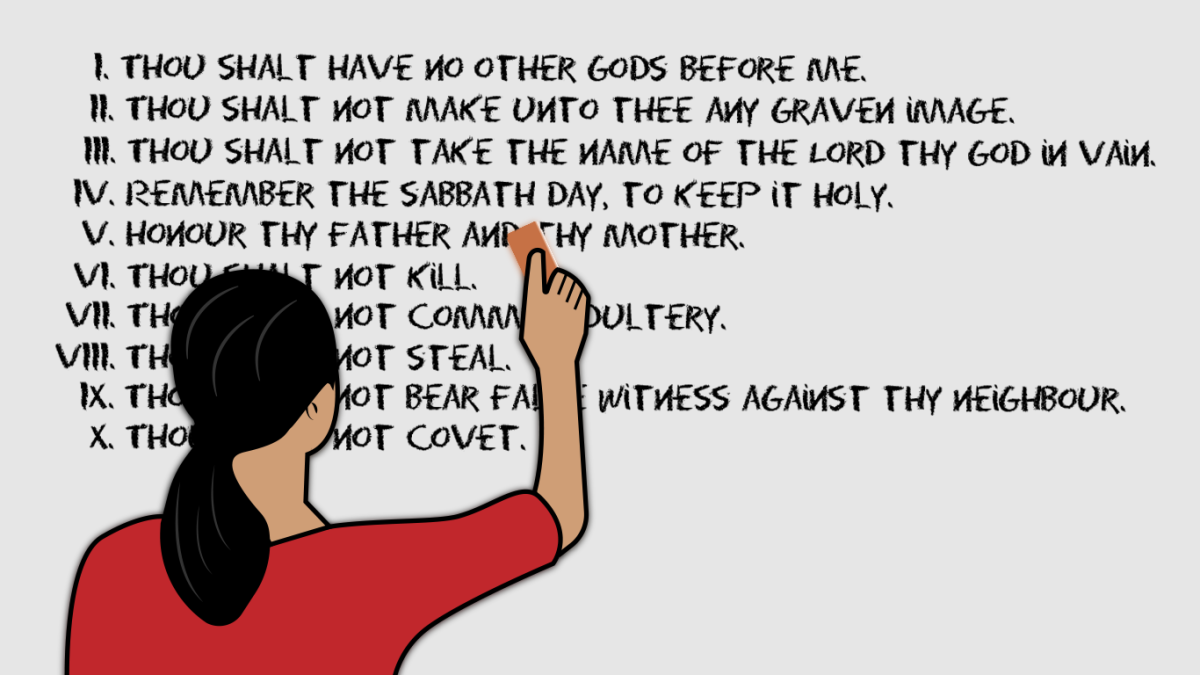Another legislative session, another attempt by Rep. Dodie Horton, R-Haughton, to impose her fundamentalist interpretation of Christianity onto Louisiana’s youth.
Last year, Horton successfully shepherded House Bill 8 through the state Legislature. It ultimately passed unanimously in both the House and Senate and was signed by then-Gov. John Bel Edwards. It requires that the national motto “In God We Trust” be displayed in every public school and university classroom in the state.
This year, she’s at it again with a different, even less justifiable religious text. House Bill 71 would require the Ten Commandments (or more accurately, her specific denomination’s version of the commandments) to be displayed in every classroom right there alongside the motto.
There are three main problems with hanging up such an overt religious text in spaces meant for public, secular education.
First, and most glaringly, it’s a gross violation of the separation of church and state.
Horton is clearly a Christian nationalist, someone who believes both that Louisiana and the United States as a whole were made by Christians for Christians and that the government should enforce and be guided by Christianity.
She’d like to see the state and country follow her specific denomination and her chosen translation of the Bible, rather than the Constitution or any sociopolitical ideology.
She’d deny that the separation of church and state even exists. But it’s right there in the First Amendment, which clearly states there shall be “no law respecting an establishment of religion.”
Public schools shouldn’t be forcing a specific religion, or even the concept of a god, down the throats of impressionable children. Education isn’t the place for religious conversion. It isn’t meant to be a space for teachers to vomit parents’ theology into the mouths of their kids.
When young children look at the front of their classrooms and see “I am the Lord thy God,” they’ll feel immense pressure to comply. And if they resist, they’ll feel an immense sense of alienation.
Second, Horton is attempting to spread a simplified and misleading version of history.
The 10 Commandments weren’t some revolutionary text that invented basic concepts like “killing and stealing are bad.” And they weren’t essential in the founding of this country. Horton’s fundamental misinterpretation of history only serves to justify her Christian nationalism.
Third, and most importantly, the 10 Commandments aren’t even a good moral framework.
There’s the obvious equation of women with property and livestock. There’s the often overlooked implication that disobedient or disrespectful children should expect to be killed for their transgressions.
But the most repugnant thing about the Commandments is that they’re called that.
The 10 Commandments frame moral action as adhering to the orders of a cosmic authority. That is just repugnant.
Ethics shouldn’t be about obedience to a list of rules. It should be about doing things that increase happiness and decrease unhappiness.
Children shouldn’t think that murder is wrong because God said so. They shouldn’t need someone looking over their shoulder in order to do the right thing. And schools certainly shouldn’t instill that expectation in their young minds.
Matthew Pellittieri is a 19-year-old history and political science sophomore from Ponchatoula.







